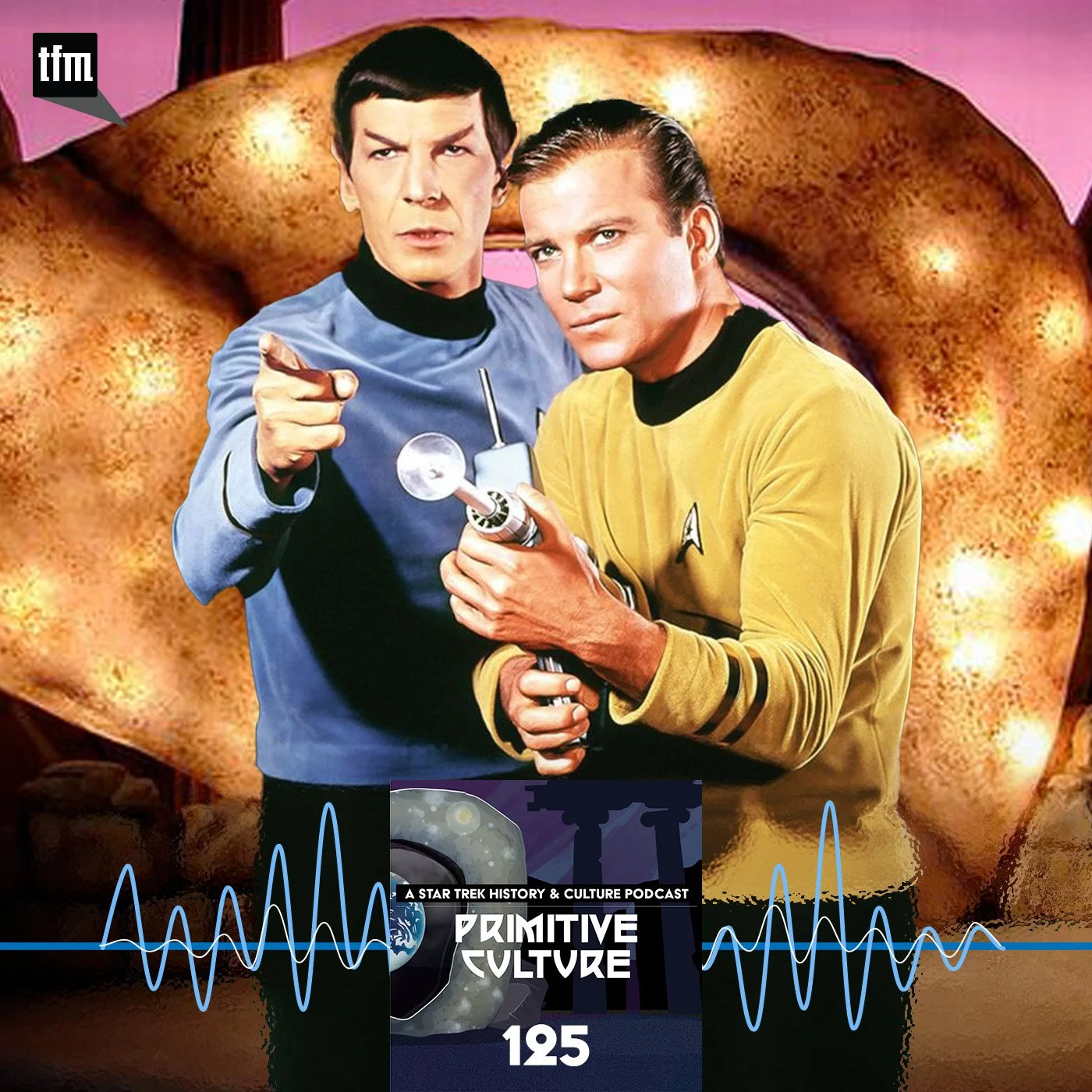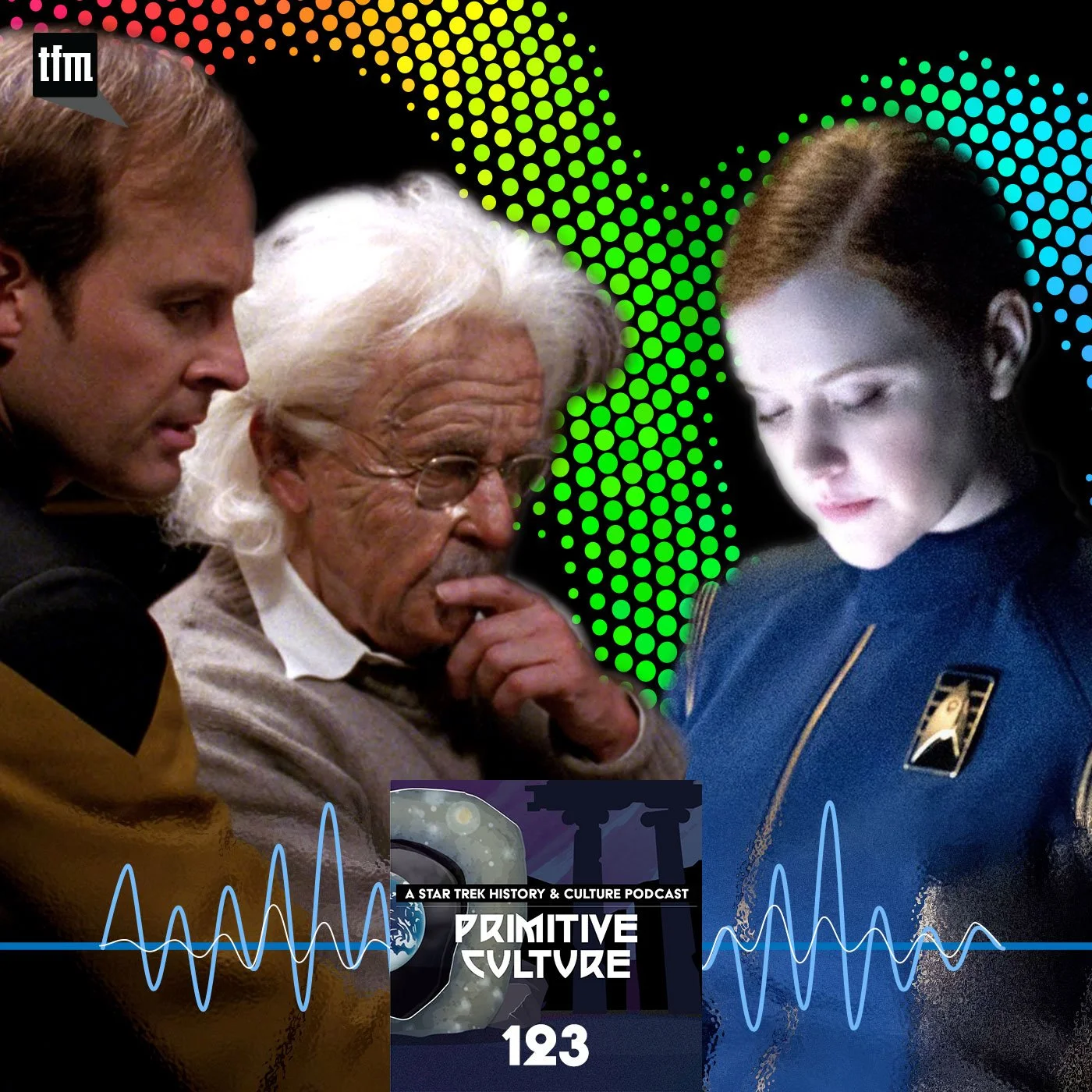Star Trek’s Dark Ages.

Running Time: 1 hour 31 minutes 59 seconds
Download / RSS / Send us a message / Discuss the show / Support Trek.fm
Sanctuary districts. Eugenics Wars. World War III and the post-atomic horror. It seems clear that the period between our own time and the founding of Starfleet is not one of humanity’s finest chapters. In fact, for a franchise built on an optimistic view of tomorrow, Star Trek offers more than a few glimpses of a catastrophic future.
In this episode of Primitive Culture, host Duncan Barrett is joined by Tony Black to look at these Dark Ages in the imagined history that is Star Trek. What does it take—as far as Trek is concerned—to get from today to a utopian future? Are we heading in the right direction? Is there hope in technology? And how far into its own history can Star Trek dip before it becomes something fundamentally different?
Chapters
Intro (00:00:00)
World War III (00:09:15)
First Contact (00:15:05)
Augmented Realities (00:27:20)
Regime Change (00:36:02)
Earth Exit (00:47:40)
The Truth Is Out There (00:59:45)
Black Mirrors (01:07:15)
Final Thoughts (01:22:45)
Host
Duncan Barrett
Guest
Tony Black
Production
Tony Black (Editor) Duncan Barrett (Producer) C Bryan Jones (Executive Producer) Matthew Rushing (Executive Producer) Ken Tripp (Executive Producer) Tony Black (Associate Producer) Norman C. Lao (Associate Producer) Amy Nelson (Associate Producer) Richard Marquez (Production Manager) Brandon-Shea Mutala (Patreon Manager)
Music in Star Trek. We take a look at how Trek’s underscore has developed over more than half a century with musicologists Jessica Getman and Evan Ware.
Half a Decade of Primitive Culture. In this special episode, recorded earlier this year, we look back on the podcast and how Star Trek has changed in the time we’ve been podcasting.
Cardassian war crimes and The Man in the Glass Booth. We look at the DS9 episode “Duet” alongside The Man in the Glass Booth, as well as the presentation of war crimes in Star Trek more generally.
Autistic representation in Star Trek. We look at Trek’s history of (accidental) representation of neurodiversity, considering characters such as Data, Seven of Nine, Reginald Barclay, and Sylvia Tilly.
Star Trek’s Double Troubles. We look doppelgängers and duplicates from The Original Series through Lower Decks.
Trans Representation in Star Trek. We look at how Star Trek accidentally addressed the topic in TNG and DS9.
The Alien franchise and Star Trek: Strange New Worlds. We take a look at “All Those Who Wander” alongside the Alien franchise.
How Star Trek’s leaders reflect our own. We talk about the parallels between Star Trek’s leaders and our own, and ask whether Star Trek has finally managed to marry the military ethos of Starfleet with the business of intergalactic politics.
Star Trek’s backdoor pilots. We take a look at the original attempt to establish a spinoff series, “Assignment: Earth,” as well as more recent examples including Strange New Worlds and more potential offspring of Discovery.
What if it wasn’t the Vulcans who made first contact? In honor of First Contact Day, we imagine how things might have played out for humanity had it been the Klingons, Romulans, or others passing by on April 5, 2063.










